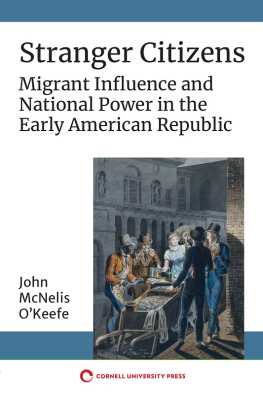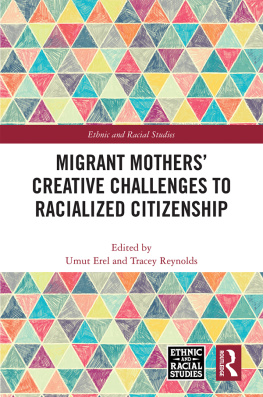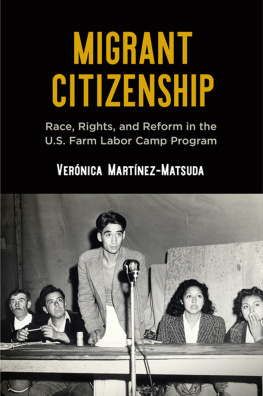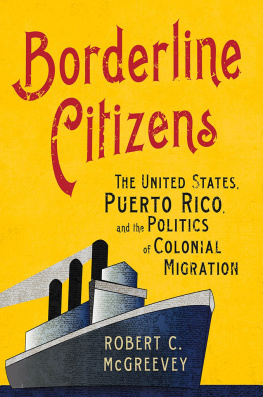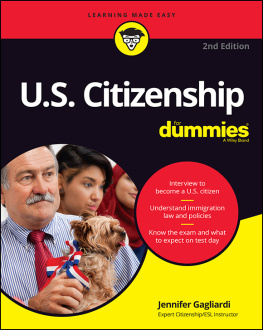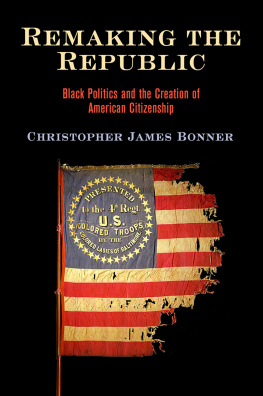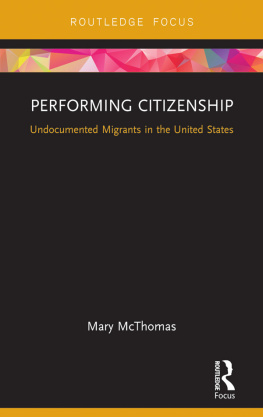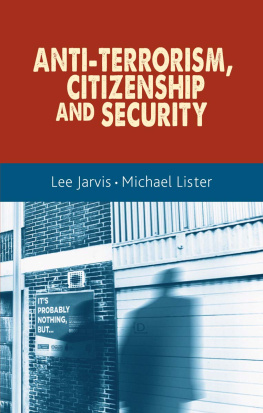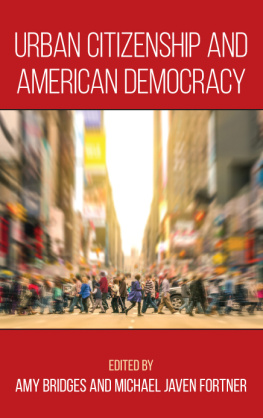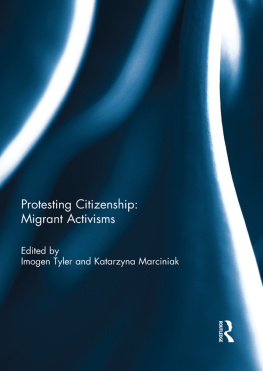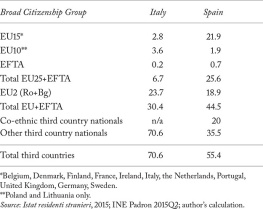Stranger Citizens
Stranger Citizens
Migrant Influence and National Power in the Early American Republic
John McNelis OKeefe
Cornell University Press
Ithaca and London
Copyright 2021 by Cornell University
The text of this book is licensed under a Creative Commons Attribution-NonCommercial-NoDerivatives 4.0 International License: https://creativecommons.org/licenses/by-nc-nd/4.0/.
To use this book, or parts of this book, in any way not covered by the license, please contact Cornell University Press, Sage House, 512 East State Street, Ithaca, New York 14850. Visit our website at cornellpress.cornell.edu.
First published 2021 by Cornell University Press
Library of Congress Cataloging-in-Publication Data
Names: O'Keefe, John McNelis, 1978 author.
Title: Stranger citizens: migrant influence and national power in the early American republic / John McNelis O'Keefe.
Description: Ithaca [New York]: Cornell University Press, 2020. | Includes bibliographical references and index.
Identifiers: LCCN 2020037681 (print) | LCCN 2020037682 (ebook) | ISBN 9781501756092 (paperback) | ISBN 9781501756160 (pdf) | ISBN 9781501756535 (epub)
Subjects: LCSH: CitizenshipSocial aspectsUnited StatesHistory18th century. | CitizenshipSocial aspectsUnited StatesHistory19th century. | ImmigrantsSocial aspectsUnited StatesHistory18th century. | ImmigrantsSocial aspectsUnited StatesHistory19th century.
Classification: LCC JF801.O44 2020 (print) | LCC JF801 (ebook) | DDC 323.60973/09034dc23
LC record available at https://lccn.loc.gov/2020037681
LC ebook record available at https://lccn.loc.gov/2020037682
Cover image: John Lewis Krimmel, Nightlife in Philadelphiaan Oyster Barrow in front of the Chestnut Street Theater . Courtesy of the Rogers Fund of the Metropolitan Museum of Art.
This book is published as part of the Sustainable History Monograph Pilot. With the generous support of the Andrew W. Mellon Foundation, the Pilot uses cutting-edge publishing technology to produce open access digital editions of high-quality, peer-reviewed monographs from leading university presses. Free digital editions can be downloaded from: Books at JSTOR, EBSCO, Hathi Trust, Internet Archive, OAPEN, Project MUSE, and many other open repositories.
While the digital edition is free to download, read, and share, the book is under copyright and covered by the following Creative Commons License: BY-NC-ND 4.0 . Please consult www.creativecommons.org if you have questions about your rights to reuse the material in this book.
When you cite the book, please include the following URL for its Digital Object Identifier (DOI):https://doi.org/10.7298/c6p0-0g38
We are eager to learn more about how you discovered this title and how you are using it. We hope you will spend a few minutes answering a couple of questions at this url:
https://www.longleafservices.org/shmp-survey/
More information about the Sustainable History Monograph Pilot can be found at https://www.longleafservices.org .
To those who have crossed borders
Contents
Thanks to everyone who took this project from idea to book and its many stages in between. This book began at the Department of American Studies at George Washington University. There, Terry Murphy spent many hours reviewing and discussing chapter drafts with me, and her willingness to take the time to read and comment with constructive criticism thoroughly enriched this book as we discussed how to think about citizenship and the people who made it. Additional thought and input from Tom Guglielmo and David Silverman also contributed to the strengths of the book, and they encouraged me to demonstrate what mattered about the information that I was finding in primary sources, while ensuring that my claims were backed with strong evidence. Chad Heap and Richard Stott also provided comments and guidance.
I have participated in several reading groups over the years, and they too have provided invaluable comments, insight, and exchange of ideas. In particular, I would like to thank Justin Pope, Mary McPartland, Sara Berndt, Andrea OBrien, and Richard Boles. In additional to formal reading groups, formal and informal conversations at GW provided numerous insights from related and interdisciplinary fields of study. Kathleen Bartoloni-Tuazon has given me detailed advice on navigating the process from manuscript to publication, in addition to her careful reading of chapters. Lance Macon provided proofreading. Thanks as well to University of Nevada and Ohio University colleagues. Helpful reading and comments from Debra Nickles, Marguerite Hernandez, and Katherine Jellison helped to improve the manuscript, as did comments from the Ohio University history departments seminar, where many department members offered advice and insight.
Thanks are also due to scholars outside my home institutions who have taken time to provide comments on my work, including Iona Man-Cheong, Rosemarie Zagarri, Peter Hinks, Saskia Sassen, Ashli White, Dinah Mayo-Bobee, and Erin Aeran Chung.
I HAVE HAD a strong and supportive relationship with Cornell University Press while working on this book. Michael McGandys editorial guidance through this whole process has been very much appreciated by this first-time author. Thanks also to Clare Jones as well as my anonymous readers, whose constructive criticism and advice have given this book additional scholarly insight. Additional thanks to Elsa Dixler, Ihsan Taylor, and Longleaf Services at UNC Press. A grant from the Andrew W. Mellon Foundation that has funded the Sustainable History Monograph Pilot has allowed this book to be published as a digital, open-access book available to all.
Thanks also to those institutions that have provided financial support for this research, and to the people at archival institutions who made their materials accessible. The Columbian College and American Studies Department at George Washington University provided generous financial support and stipends, as did the Smithsonian National Museum of American History. Ohio University provided conference funding to workshop draft materials, and the OU Regional Higher Education Faculty Development Committee as well as the OU Faculty Research Support Program provided additional funding to support the publication of this book. The Cosmos Club Foundation funded archival research travel to Belfast and Dublin. Thanks to the Public Record Office of Northern Ireland and the John Carter Brown Library for their assistance in locating difficult to find sources. Special thanks are due to the Cornwall Historical Society and Ann Schillinger, from whom I learned much about the Foreign Mission School and the students there.
A version of Chapter 3 of this book previously appeared as Alien Enemies or Naturalized Citizens? Representations of British-born Residents in the United States during the War of 1812, in Representation and Citizenship (Detroit: Wayne State University Press, 2016). I thank Liette Gidlow, Richard Marback, Marc Kruman, and the anonymous reviewers for their comments.
FAMILY AND FRIENDS have also been a great help and support during this project. Especial thanks to my husband, Greg Brown, whose comments during proofreading helped this book be the best it can be, and who has been there throughout with love and support. Thanks also to Cynthia Owens, Laura Gosling, Ritija Gupta, and Gonzalo Gmez. Finally, thanks to my parents, John and Monica OKeefe, as well as my sisters Laura and Meaghan, who have been loving and supportive family members throughout this whole process.

